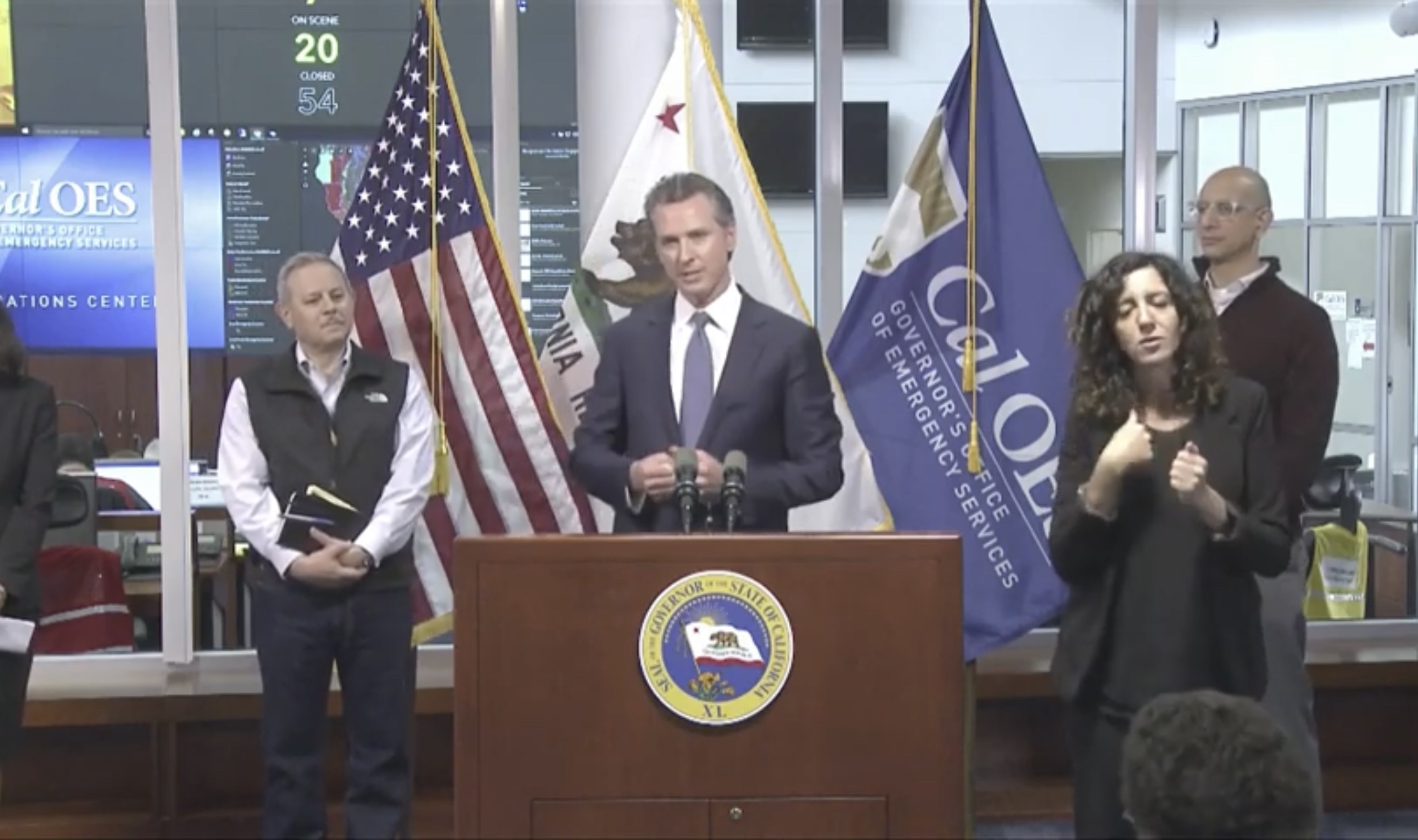Gov. Newsom Announces New Recommendations to Protect High-Risk Individuals from COVID-19
March 17, 2020

March 17, 2020
Gov. Newsom announced over the weekend new recommendations for Californians to follow in order to curb the spread of COVID-19 and protect our most vulnerable populations. He has asked all adults over 65 years of age and people with chronic disease or who are immunocompromised to practice home isolation. He also ordered all bars, nightclubs, wineries, and breweries to close temporarily, and asked restaurants to focus on delivery and take out options when available. Six Bay Area counties in the state are requiring a shelter-in-place directive, which will require residents to stay at home for the next three weeks. Only grocery stores, gas stations, banks, pharmacies, and hospitals, along with restaurants offering delivery will remain open.
The California Department of Public Health (CDPH) has been consistently updating information on the situation. As of March 15, 2020, there were a total of 392 positive cases and six deaths in California (not including the docked Princess Cruise ship in Oakland). Here is a breakdown by numbers:
Ages of all confirmed positive cases:
24 – Cases of positive tests related to federal repatriation flights
368 – Cases not related to repatriation flights
Here are the counties reporting community transmission:
• Alameda
• Contra Costa
• City of Long Beach
• Orange
• Riverside
• Sacramento
• San Diego
• San Francisco
• San Joaquin
• San Mateo
• Santa Clara
• Santa Cruz
• Solano
• Stanislaus
• Tulare
• Ventura
• Yolo
California Department of Public Health said that more labs will be ready to test for COVID-19 soon, which means that health officials and patients will get results sooner too. CDPH also recommends that until the end of the month, gatherings over 250 people are postponed, and that gatherings of high-risk individuals are limited to 10 or less participants. Social distancing, which involves being at least 6 feet away from others, should be practiced when possible.
It is especially vital that people who are at higher risk for serious illness caused by COVID-19 follow good preventative actions including:
The California Chronic Care Coalition applauds efforts by Gov Newsom, CDPH, and other agencies in addressing this crisis, and we stand behind our health care workers, agencies and chronic disease community and will continue to serve as a resource to Californians.
For a complete list of guidance visit: https://www.cdph.ca.gov/Programs/CID/DCDC/Pages/Guidance.aspx
For more on California Department of Public Health efforts and information:
https://www.cdph.ca.gov/Programs/OPA/Pages/New-Release-2020.aspx